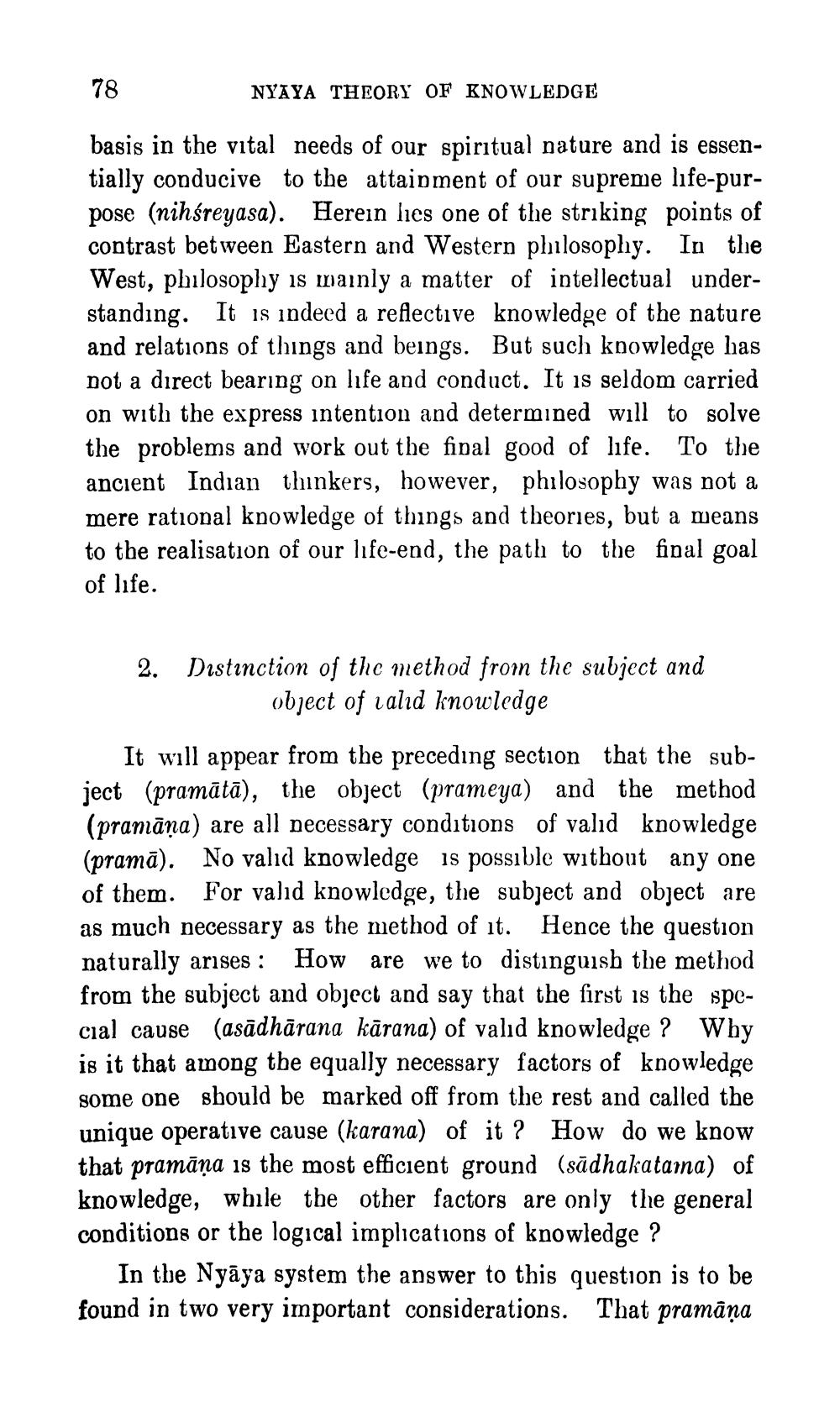________________
78
NYAYA THEORY OF KNOWLEDGE
basis in the vital needs of our spiritual nature and is essentially conducive to the attainment of our supreme life-purpose (nihsreyasa). Herein lies one of the striking points of contrast between Eastern and Western philosophy. In the West, philosophy is mainly a matter of intellectual understanding. It is indeed a reflective knowledge of the nature and relations of things and beings. But such knowledge has not a direct bearing on life and conduct. It is seldom carried on with the express intention and determined will to solve the problems and work out the final good of life. To the ancient Indian thinkers, however, philosophy was not a mere rational knowledge of things and theories, but a means to the realisation of our life-end, the path to the final goal of life.
2. Distinction of the method from the subject and object of valid knowledge
It will appear from the preceding section that the subject (pramātā), the object (prameya) and the method (pramāna) are all necessary conditions of valid knowledge (pramā). No valid knowledge is possible without any one of them. For valid knowledge, the subject and object are as much necessary as the method of it. Hence the question naturally arises: How are we to distinguish the method from the subject and object and say that the first is the special cause (asādhārana kārana) of valid knowledge? Why is it that among the equally necessary factors of knowledge some one should be marked off from the rest and called the unique operative cause (karana) of it? How do we know that pramāna is the most efficient ground (sadhakatama) of knowledge, while the other factors are only the general conditions or the logical implications of knowledge ?
In the Nyaya system the answer to this question is to be found in two very important considerations. That pramāņa




